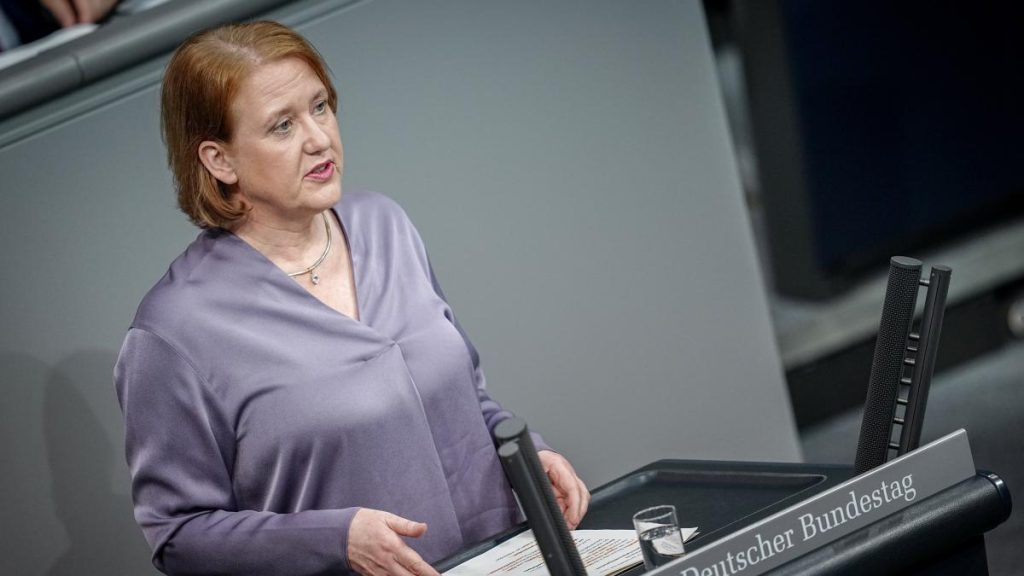Former senior civil servant in the Family Ministry calls children’s basic security a “wrong idea”
Former senior civil servant in the Family Ministry, Franziska Vollmer, does not believe in the success of the planned children’s basic security proposed by Lisa Paus. In an interview with the “Tagesspiegel,” Vollmer stated that many experts who once supported the concept of children’s basic security now share her doubts. Vollmer, who was actively involved in drafting the legislation for the children’s basic security until early 2023, emphasized that the idea ultimately does not work. She pointed out that if the goal is to give families more money, it can be done within the existing system, and that implementing children’s basic security would actually complicate the administration, despite good intentions.
The debate surrounding children’s basic security revolves around families in the citizen’s income system, where parents and children are currently supported by job centers together. Minister Paus had promised to “take the children out of the job center.” Under the current plan, a new agency called the Family Service would be responsible for children, while parents would continue to be supported by job centers. However, there are still many unanswered questions and challenges in integrating the two systems after two and a half years of planning. Vollmer expressed skepticism regarding the feasibility of a simple and accurate benefit system solely for children, stating that it would be difficult to implement in practice.
The proposal for children’s basic security included the creation of 5,000 new government positions, which Green Party leader Ricarda Lang rejected, putting an end to the debate on the issue. The disagreement highlights the challenges in finding a solution that balances simplifying the system while targeting support effectively. The introduction of a new agency could potentially lead to administrative complications and overlaps between different welfare systems. The discussion underscores the complexity of addressing child poverty and the need for feasible and practical solutions that can effectively support families in need.
Critics of the children’s basic security proposal, including former officials like Vollmer, question its effectiveness and practicality. The idea of providing a specific benefit exclusively for children while maintaining a separate system for parents raises concerns about administrative complexities and inefficiencies. As the debate continues within the coalition government, the issue of balancing the desire to support families with the need for streamlined administration remains a key challenge. Finding a solution that meets both objectives will require careful consideration and collaboration among policymakers, experts, and stakeholders.
The debate over children’s basic security reflects broader discussions on social welfare policies and the challenges of addressing poverty and inequality. The differing perspectives among policymakers and experts highlight the complexities involved in designing effective support systems for vulnerable populations. As the government grapples with the implementation of children’s basic security, ongoing dialogue and examination of alternative approaches will be essential to ensure that any new policy initiatives are practical, sustainable, and beneficial for families in need. As the debate continues, stakeholders will need to consider the feedback from experts like Vollmer to refine and improve proposed solutions for addressing child poverty and supporting families effectively.


